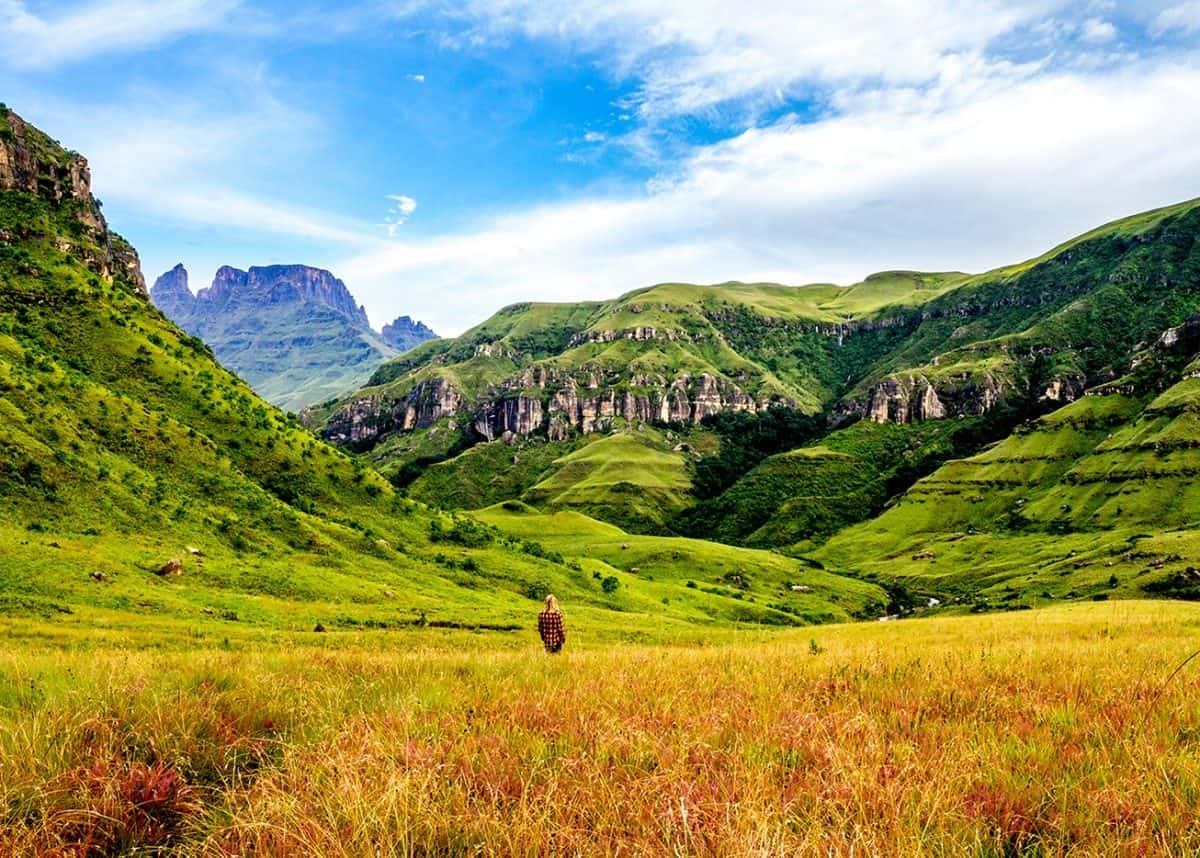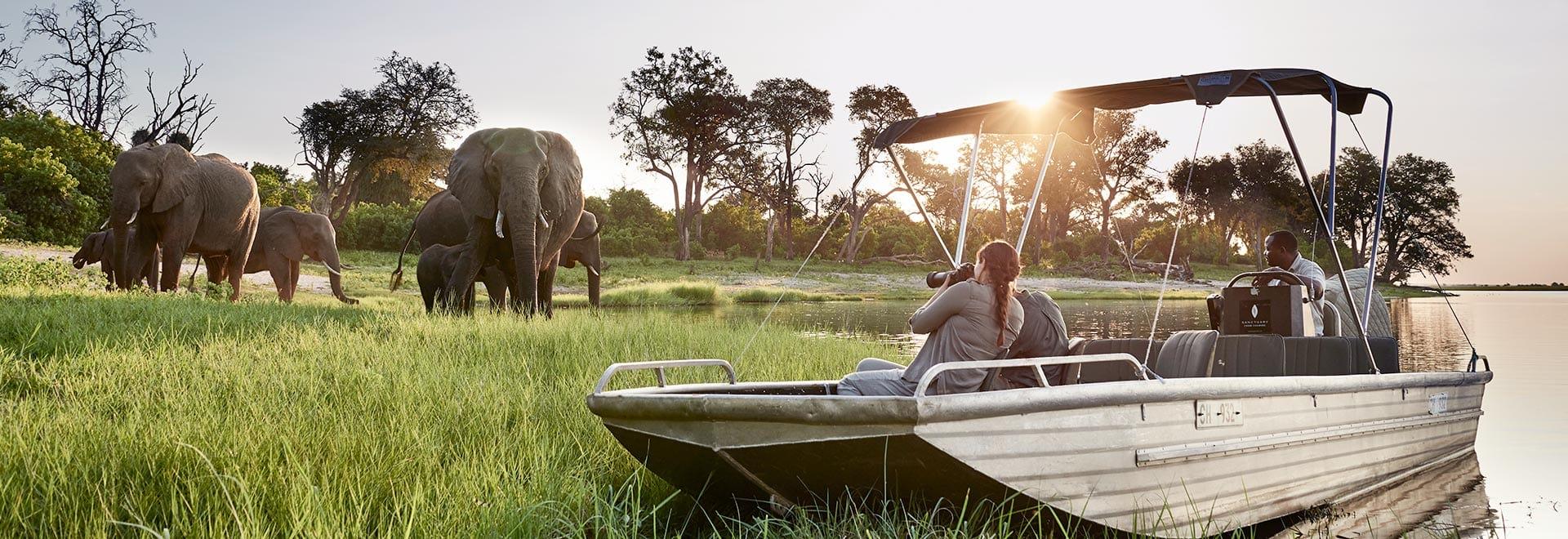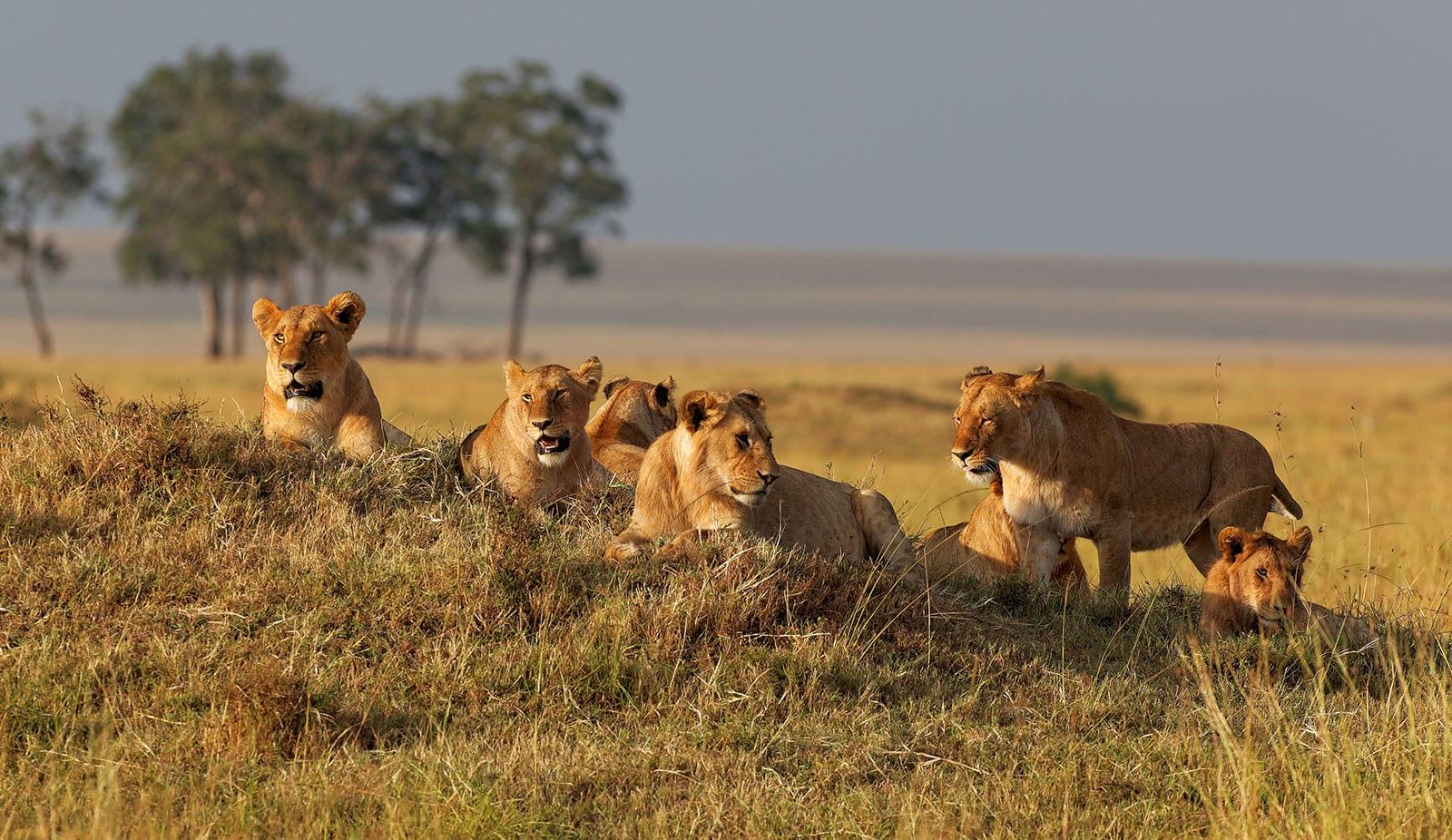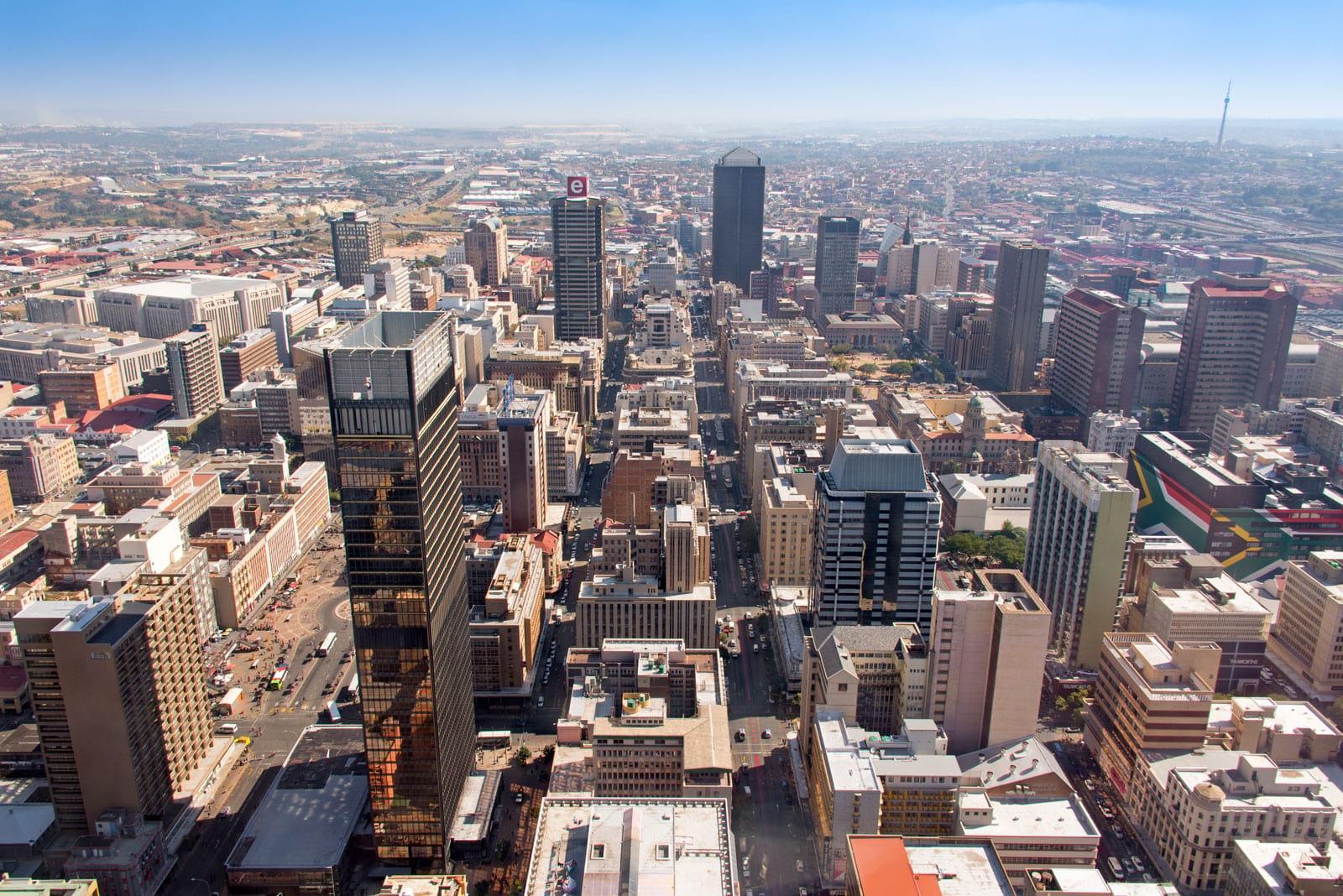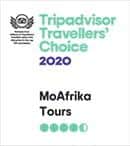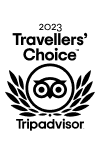Make safety a priority for an enjoyable holiday in South Africa. Do your research, plan ahead and follow these valuable travel tips of a drama-free trip.
PLANNING YOUR TRIP TO SOUTH AFRICA
Choose your dates carefully Don’t book a holiday to South Africa in the peak tourism seasons, unless you are visiting family. Durban and Cape Town suffer from tourism overcrowding in the very busy holiday periods. The traffic is hectic, restaurants are overbooked, and accommodation is scarce and more expensive in the peak season. It’s not fun waiting for ages to get a table at a restaurant or being stuck in holiday traffic on a gorgeous sunny day in Cape Town when you should be on the beach. Holiday destinations in South Africa get very busy during the Public Holiday period and coincide with school holidays. People take advantage of the public holidays to extend the number of days leave they can take and flock in their droves to holiday hotspots. If possible, avoid booking a holiday to South Africa at these busy periods
- December/January: Christmas/New Year/end of year
- March/April: Easter/summer school holiday
- July: winter school holiday
- August/September: spring school holiday
Pre-book your accommodation
South Africa is not Europe. You can’t arrive in a city and walk into an establishment and ask for a room. Don’t leave it to chance that you’ll find a decent room in a decent hotel in a decent location. Book ahead – at the very least, for the first two nights of your holiday in South Africa. While you are at it, book in advance for a special restaurant you’d like to try. South Africa has excellent restaurants run by award-winning chefs and in the very busy holiday periods, like Christmas, these restaurants are usually fully booked months ahead.
Check your passport is valid
Make sure your passport is valid and has not expired. Important! Your passport must be valid for a minimum of six months after you leave South Africa and must have at least two blank pages in it. Authorities are very strict about this and you will have a problem at the airport if you make a mistake. Give yourself enough time before leaving for your holiday to apply for a new passport if necessary. Don’t leave it until the last moment.
Check visa requirements
Check online for visa and entry requirements for South Africa. For more information, visit: http://www.dha.gov.za/index.php/applying-for-sa-visa.
Get the documents you need if travelling to South Africa with children
South Africa has introduced stringent requirements for children entering South Africa. For more information, visit: http://www.home-affairs.gov.za/index.php/civic-services/traveling-with-children Do this well in advance as you will be denied access into South Africa if you don’t have the right documents. This is important if you are divorced or widowed. Parents travelling with children who are 18 years and younger must produce a full unabridged birth certificate for each child. Please note!
Their full unabridged certificate – not their short, abridged certificate.
The full unabridged birth certificate must list the child’s details and both parent’s details. Supporting documents for minors are not required if you are in transit through a South African International Airport. If you go through immigration, you will need to present the relevant documents for your children. There are other requirements if a child is travelling with only one parent or is travelling without a biological parent, is unaccompanied or travelling in a school tour group. Check online for consent forms needed, otherwise the child will not be allowed to enter South Africa.
Take out medical travel insurance
This is a priority. Don’t skimp on this as a medical emergency in South Africa will cost you a fortune. State-funded hospitals are not recommended because the quality of care and hygiene at the public hospitals cannot be guaranteed. Only seek medical attention at one of the large reputable private hospitals in South Africa, such as a Medi-Clinic or Life Hospital in the major towns and cities. Take out full, comprehensive medical travel insurance for your whole family. This must include hospitalisation and medical repatriation. A flight out of South Africa for a medical emergency will cost you a fortune. Make sure your medical travel insurance covers both pre-existing conditions and any high-risk activities you would like to do, including scuba diving, paragliding and skydiving.
Get vaccinated if required
Speak to your doctor or someone at a travel clinic for information on any vaccinations you need for a trip to South Africa, and what health risks you must know about for the area you will be visiting. For more information, visit: https://wwwnc.cdc.gov/travel/destinations/traveler/none/south-africa
Take malaria tablets if you are going to a malaria area
This is not negotiable. Malaria can be deadly and must be taken seriously. Firstly, find out from your local travel clinic or online if you will be travelling to or through a malaria area. You arrive in South Africa at OR Tambo International Airport in Johannesburg. This is not a malaria area, so you have a bit of time if you are not going on safari straightaway. If you are going straight from the airport to a game reserve in a malaria area, you need to start taking your malaria tablets before you arrive in South Africa, as per the instructions. Get the right advise! Either buy malaria tablets before you leave home or buy them is South Africa at a travel clinic located in one of the large pharmacies in Johannesburg and Cape Town. It all depends on your travel itinerary.
Get sorted for your medical needs
Ask your doctor to write out a prescription for any chronic medication you are taking in case you run out of tablets on your trip. Your doctor also needs to provide you with a signed medical certificate which you may have to show to Customs officials if they question why you have scheduled drugs in your bag. Get a medical alert bracelet if you don’t have one, if you are highly allergic to something or suffer from a medical condition like diabetes. The bracelet will speak for you if you are very ill and can’t let people know what is wrong. Make sure your children’s immunisations are up-to-date. This includes measles, tetanus and polio vaccinations. Visit your dentist and fix any niggling problems before you leave home.
You will battle to find a decent dentist in remote areas in South Africa, and you don’t want your holiday ruined by chronic toothache. If you are travelling to South Africa in the summer months and will be swimming in pools and the sea, ask your doctor for prescription drops for earache. Kids often get ear infections and bad earache after hours in a pool or the sea, and this could end up with a trip to hospital. Buy an anti-fungal ointment for the plane trip – in South Africa we use Bactroban. Smear a generous blob around the inside of your nose to stop nasty germs getting up there and into your throat. Most holiday colds and flus are picked up on the long-haul flights. Prepare a first-aid kit for your holiday that includes basic stuff to treat minor ailments like cuts and bruises, sprained ankles, headaches and sun burn. This should include an antiseptic wash and cream, bandages, plasters and ointment for skin rashes. Buy good quality insect repellent as soon as you arrive in South Africa.
Johannesburg is not a malaria area, but mosquitos come out at night to bite you when you are sitting in summer clothes outside. There’s nothing worse than walking around with open sores on your legs from scratching like crazy. You’ll need a mosquito spray for your room if your hotel doesn’t have mosquito nets. A tiny mosquito can drive you nuts in the middle of the night. Either buy insect repellent and sunscreen lotion before you leave home or buy it as soon as you arrive in South Africa. Also pack a soothing lotion for sunburn. This is important if you are in South Africa during our hot summer season, but also applies to the winter months.
Get travel smart with the right gear
Purchase a light daypack and a second travel bag that is light and slimline. The latter should be used for your important travel documents and chronic medication. It should be suitable to wear over your shoulder and under a jacket. Think man purse with a long strap. Pack a travel umbrella for rainy days and a light windproof jacket. When the wind blows on a hot summer’s day, you don’t want to wear a heavy, thick winter jacket. You end up taking it off during the day and that’s a nuisance to carry around. Buy cable ties or extra padlocks for your luggage. This is needed for the flight over to South Africa and recommended if you are leaving valuables behind in your hotel and there isn’t a safe in your room. Remember to take a pair of small scissors with you if you are using cable ties. Put the spare key for your locks in a separate bag. Preferably purchase luggage made from hard plastic that can’t be cut and opened by thieves handling luggage at airports. Use a padlock to secure your luggage instead of wrapping your suitcase in reams of plastic.
There is too much plastic in this world and South Africa doesn’t want all that plastic. Invest in a good pair of walking shoes, or takkies as we call them in South Africa. Don’t start your holiday off on the wrong footing with blisters! Also pack a pair of closed shoes for the evening if you are on safari in a malaria area. Plan your wardrobe and pack light. The exchange rate is so favourable for foreigners in South Africa, you’ll definitely buy new clothes on your holiday and need that extra space in your suitcase.
Leave important information with family or friends
Give a copy of your itinerary to a close friend or family before leaving for your holiday in South Africa. This should include contact numbers for your accommodation and tour operators you are using while in South Africa. Leave them with certified copies of all your travel documents which can be couriered to you in South Africa if your passport, banking cards and travel insurance documents are lost. Scan and save a certified copy of your important travel documents which you can print out if needed.
Arrive in South Africa with some cash
You’ll need some cash for when you arrive in South Africa. Check with your tour operator or the shuttle company if you are required to pay cash upfront for transfers. Some shuttle operators insist on cash payments while some allow you to do an electronic payment in advance. There are ATM facilities in all the major airports and you can withdraw South African Rand on arrival. It’s safe to do so inside the airport, but don’t withdraw large amounts. One scam that is a big problem is thieves following foreigners from the airport to their hotels and holding them up if they think they have a lot of cash and valuables on them.
Leave your laptop at home
Set up your cell phone so you can receive and send emails from your phone and also to do bank transfers. Arriving at the airport with a large, noticeable laptop is asking for trouble. You could be followed to your hotel and robbed. It’s also a hassle to find a safe place to keep your laptop during your holiday, so unless you cannot live without it – leave it at home.
Read up on road rules
If you have hired a car for your trip to South Africa and are travelling around on your own, you don’t want to be stopped by a corrupt traffic cop. This is a problem in South Africa and it’s not a pleasant experience being harassed and threatened by a dodgy cop on the side of a highway. Avoid this happening by obeying the road rules and local laws. Don’t drink and drive, and drive with caution on our roads.
South Africa has a high number of car accidents during the busy holiday season because of reckless and drunk driving. Avoid driving at night if possible. In South Africa, we drive on the left side of the road. Remember this so you don’t cause an accident. There have been many serious car crashes and fatalities caused by foreigners making a mistake and driving on the wrong side of the road. Before you set off from the car rental agency, practice driving in a quiet area close to the airport to get used to driving on the left side if you are from a country that drives on the other side of the road.
Research safe and reliable transport options
At the moment, Uber is only operating in Cape Town, Johannesburg, Pretoria and Durban. Do not bank on using Uber in the small towns and cities. Plan ahead and book transport that is safe and reliable, so you are not left stranded outside an airport or hotel without a ride. The Gautrain is a state-of-the art commuter rail system which links Johannesburg, Pretoria and OR Tambo International Airport.
The high-speed train takes you from the airport to central stations in the two city centres but from there you need transport to your hotel or guest lodge. Uber is your best and safest option but avoid using Uber at night as there have been isolated attacks on travellers by rogue elements. Or ask the hotels you have booked into if they have a collection/drop-off service. Cape Town is geared for tourists and there are more transport options for tourists in the Mother City, such as the City Shuttle. Uber is a good option for Johannesburg, Pretoria and Durban but it can get expensive using it all the time.
Plan your holiday wardrobe
Pack what you need for the seasonal weather variations. South Africa is not all sunshine and sweltering hot days. It can get bitterly cold and wet in the winter months in Cape Town and the Garden Route which experiences winter rainfall. And you can get caught in a violent thunderstorm in the Highveld which experiences summer rainfall. Seasoned travellers to South Africa pack layers of clothing. If you don’t want to travel with a thick, bulky jacket – bring a light, weatherproof jacket and wear layers of long sleeve shirts and cardigans under it. Bring warm scarves and beanies if you are going on a safari.
It can get nippy on the back of an open vehicle in a game park on evening and night drives. Bring lots of socks – thick and thin, so you always have dry and warm feet if it gets wet and cold. And don’t worry, if you need clothes you can go shopping at the fantastic shopping malls in South Africa.
Pack what you need for a safari
Buy spare batteries and a memory card before you leave home or buy them at one of the large shopping centres when you arrive in South Africa. The convenience shops in Kruger National Park and other game reserves are very expensive and a bit of a tourist trap. They also might not stock what you need for your camera and mobile devices. Don’t forget to pack an international travel plug. South Africa uses a three-prong round plug. Bring an extra charger for your devices in case you leave yours behind in your hotel room. You don’t need heavy, rugged hiking boots for a safari unless you plan to do a walking trail in the Kruger Park. Pack a sturdy pair of walking shoes (sneakers) that are comfortable and waterproof, if you are worried about space in your luggage.
HAVE A GREAT HOLIDAY IN SOUTH AFRICA
Be sensible and take the necessary precautions to stay safe in South Africa. The country has a high crime rate but the risk to overseas tourists is low because you very rarely venture off the beaten tourist path. Make wise decisions about where you travel, where you stay and who you engage with on holidays. Tourist scams from around the world are alive and happening in South Africa. To avoid upset stomachs on your holiday to South Africa, avoid eating raw and unwashed produce from unknown sources. This includes street vendors and dodgy convenience stores in the country. Stick to food that has been cooked well in clean kitchens.
Only drink bottled water or store-bought cooldrinks. The bottle seal must not be broken. One trick is street vendors take used water bottles and refill them at the local tap, and then sell them off as purified water. If you are in a remote area or on safari where the water quality is poor, avoid ice in your drinks. Mosquitos and biting insects are most active in the late afternoons and early evenings. Cover up with long sleeve shirts and pants, and wear socks and shoes. Spray yourself and your room with insect repellent, and always sleep under a mosquito net if you are in a malaria area. Never go out in the day without sunscreen even if it is a cloudy, overcast day. The South African sun will burn you badly if you are not used to our harsh sun, and bad sunburn can lead to sunstroke. If you think you have sunstroke, drink as much water as you can to re-hydrate and go to your closest hospital for treatment. Carry your important documents like passports and identity documents, and any chronic medication in a separate bag to your day pack.
Buy yourself a small, handy travel bag that goes over your shoulder and can be kept under your jacket when travelling. Keep it close to you at all times, preferably close to your stomach. Do not put important travel documents and chronic medication in your luggage. If your bag goes missing at the airport or is stolen, you’ll be in a lot of trouble. Use protection and practice safe sex. South Africa is plagued by the AIDS epidemic. If you have a penchant for prostitutes or are prone to picking up strangers in bars and pubs, be very careful. Aids is life-threatening, and it is critical that you take the necessary precautions.
Don’t take dangerous risks with your life for the sake of a casual fling with a stranger. If you’re keen to explore areas that are off the beaten tourist track, book a day tour with a reputable tour operator such as Moafrika Tours. Day tours to Soweto and Johannesburg inner city are rich in history and fascinating, but don’t venture into these areas on your own. You’ll stick out like a sore thumb as a foreign tourist and may become a victim of crime if you’re not careful. Large townships like Soweto in Gauteng and Khayelitsha in Cape Town are home to some of the poorest people in the country; don’t go there unless you’re with a tour operator who knows these areas well and will keep you safe. If you want an adrenalin-filled holiday and are keen to jump off bridges, hike up mountains and swim with sharks; make sure you book through a reputable operator. Check TripAdvisor for reviews of these attractions and companies with formal associations and permission to operate in the area. Only choose companies that have been operating for a long time and can be trusted. There are a lot of fly-by-night operators trying to make a quick buck out of tourists. Make safety a priority and spend extra with a good operator.
Safety tips for using UBER in South Africa
The reputation of Uber as a safe and reliable form of transport in South Africa has been damaged in the last year by reports of extremely bad behaviour by a few rogue drivers. These range from sexual harassment, theft and assault. This is not unique to South Africa as Uber is experiencing the same problems worldwide. Uber has released a feature called Real-Time ID to improve the safety of passengers. It allows a user to check the identity of the driver and make sure the driver collecting them is a match. Uber issued the following tips for your safety:
Know your driver
The feature on the app allows you to see your driver’s details including their name, vehicle type and license plate number and it also displays their photo. It will ensure you get in the right vehicle with the right driver-partner, yet many passengers fail to check this. Last year, a woman was kidnapped and raped after getting into what she thought was her Uber cab. Of course, sometimes the right driver can be a perpetrator too. Check your driver’s rating Uber drivers are rated out of 5 stars by riders on the app’s rating system. If a low rating concerns you, cancel the Uber and request a different one.
Rate properly and give feedback
If you happen to have had a terrible experience, don’t leave a three-star rating out of guilt or fear that the driver might lose their job. An honest rating will ensure the safety of future riders and telling Uber what happened may prevent another rider having a bad experience. Any negative feedback will be queried and followed up on with appropriate action by Uber’s support team.
Share your trip details
Share your ETA (estimated time of arrival) with a friend or family member. All you need to do is tap on “share status” in the app to share a link where they can see your driver’s name, photo, license plate and where the vehicle is on the map. This can be tracked even if they don’t have the app installed on their phone
Use Uber’s 24/7 support channels
Uber has customer support staff that is ready to assist with any queries. They also have rapid response, specially-trained teams that are available full-time to handle any urgent concerns that may arise.
Cancel the ride if you feel uncomfortable
This might sound like a bit of a cliché, but always trust your gut. If the driver seems dodgy in any way feel free to end the ride. Always sit in the back seat and keep your belongings close by in case you need to end the ride abruptly.
Keep a protective device or pepper spray on you Use Uber’s latest safety-selfie feature
This feature was introduced in March 2017 and uses facial recognition technology to enhance safety for both Uber drivers and riders.
Be aware of your surroundings
Although you should keep your eyes on the app to check that the driver abides by the route on the map, it is also crucial that you be mindful of your surroundings. Always ensure that your phone’s battery is fully charged and that you have sufficient airtime or data in case of an emergency.
BACK HOME FROM SOUTH AFRICA
Take malaria symptoms seriously If you have been to a malaria area, go to hospital and request a malaria test if you experience any of the following symptoms within ten days of getting home:
- flu-like symptoms and general feeling of being unwell
- mild fever
- nausea
- headache
- aches and pains
- sweats and chills
These symptoms will quickly worsen if you do have malaria: severe chills, high fever and heavy sweating. Seek medical attention immediately. Tell your doctor you have been to a malaria area and insist on a malaria blood test. The sooner you receive treatment if you have malaria, the better the outcome. Malaria can be deadly and all symptoms, no matter how mild, must be taken very seriously if you have been to a malaria area in South Africa. The malaria bug can remain dormant in your body for a few months. If you experience any of the above symptoms up to six months from the start of your holiday to South Africa, see your doctor immediately for a malaria blood test.
Card fraud
Report any irregular transactions on your bank statements to your bank immediately. Monitor your banking statements in the weeks after you return home in case you have fallen victim of card cloning and card fraud in South Africa. If you have, contact your bank immediately. Please also report the incident to the hotel or restaurant you suspect the crime was committed so management is made aware of any criminal elements in their establishment.
Write a review
If you’ve had a fantastic holiday, enjoyed the hotels you’ve stayed in and picked up interesting travel tips; write a review on sites like TripAdvisor. South Africa relies heavily on tourism to keep businesses busy and people employed. All positive feedback is welcomed and good PR for South Africa. If you have experienced poor service, shoddy accommodation and dodgy operators; write a review. Firstly, it’s important for hotels and restaurants to get this feedback so they can improve what the offer and deliver to foreign customers. And secondly, the threat of poor reviews keeps establishments on their toes.
Tell people about South Africa
Spread the word and tell your family and friends about your exciting holiday to South Africa. Tourism boosts our economy which in turn creates employment and puts food on the table for many local South Africans who in some way or the other are part of the tourism scene.
One tourist on South Africa’s shores can make a positive impact on the lives of many people in South Africa. South Africa is a beautiful country and should be a place travellers have on their bucket lists. Don’t limit yourself to the highlights of South Africa like the Cape, Garden Route and the Kruger National Park. South Africa is a land of vast contrasts and extraordinary scenery – don’t miss out on seeing the rest of South Africa because you’ll miss out of discovering all the colours of our Rainbow Nation.
WANT TO SEE MORE OF SOUTH AFRICA?
Moafrika Tours is a leading tour operator in South Africa and offers a wide variety of day tours to South Africa’s most popular destinations, including a Johannesburg tour, Soweto tour and Pretoria tour. For an authentic wildlife experience, join Moafrika Tours for a family Kruger safari or Pilanesberg safari.



